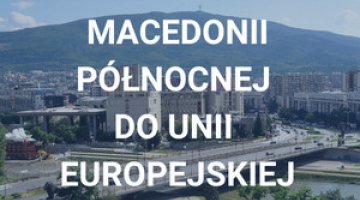Referendum in Macedonia without a conclusive outcome

A consultative referendum was held on 30 September in the Republic of Macedonia on integration into the EU and NATO, and an agreement with Greece changing the constitutional name of the country to the Republic of North Macedonia. 91.5% of those participating voted in favour of integration and adopting the agreement, while 5.7% voted against. The turnout figure was 36.9%, thus failing to clear the threshold of 50% required for the referendum to be considered conclusive, an outcome which would have strengthened the position of the government. Regardless of the outcome, however, the decision to change the name of the state will be taken by the parliament, which must adopt any amendment to the country’s basic law by a two-thirds majority. The leaders of the right-wing opposition VMRO-DPMNE party claimed the result of the referendum was a success for them, stating that by boycotting the poll en masse, people clearly expressed their disapproval with the agreement. Nevertheless, victory was also declared by Prime Minister Zoran Zaev, who stated that the citizens had unambiguously supported the implementation of the agreement with Greece, and announced that the relevant amendments to the constitution would be put before parliament; as an alternative, he outlined a plan for early elections. NATO’s Secretary General Jens Stoltenberg and the EU’s Commissioner for European Neighbourhood Policy and Enlargement Negotiations Johannes Hahn supported the prime minister’s decision.
The subject of the referendum was the agreement signed on 17 June by the foreign ministers of Greece and Macedonia which was intended to bring an end to a dispute which has lasted since 1993. Skopje agreed to withdraw the constitutional name of the country of ‘Republic of Macedonia’, which Athens maintains implies a territorial claim to the Greek province of the same name. For its part, Greece has pledged to refrain from blocking the integration of Macedonia with NATO and the EU. The agreement has sparked numerous controversies in both states. The compromise with Greece marked a departure from the assertive policy conducted by the previous VMRO-DPMNE government in 2006-2017, which led to years of stagnation in the process of integrating Macedonia into the EU and NATO, and the country’s isolation on the international stage.
Commentary
- Despite an intensive campaign by the government, which Western leaders supported, Prime Minister Zaev proved unable to overcome political divisions and convince the opposition’s supporters to support the agreement with Greece, or even to participate in the vote. The government was hoping that winning the referendum with a high turnout could serve as the main instrument for pressuring the opposition to support the constitutional change. The proposal to change the state’s name has raised objections from a substantial part of the population, although the decisive criterion determining the voters’ behaviour was the split along party lines. The results of the referendum vote corresponded to the results from the parliamentary elections earlier in the year. Most supporters of the ruling party, the Social Democratic Union of Macedonia, took part in the vote, as did the members of the national minorities, whereas the vast majority of opposition voters boycotted the referendum. Another factor in the low turnout was the fact that a significant proportion of Macedonian citizens work abroad. This is particularly true of the Albanian community, which makes up over 25% of the country’s population, and who according to polls strongly supported changing the name of the state (89%). In addition, the voter rolls are out of date, which also made it hard to ensure a high voter turnout.
- The largest opposition party VMRO-DPMNE has criticised the agreement with Greece, and used its powerful local structures to call on people not to vote. Officially, however, due to internal conflicts and pressures from the West, the party leadership did not adopt a formal position on the referendum. VMRO-DPMNE could not afford to openly call for a boycott because it works closely with the European People’s Party, politicians from which had been involved in the referendum on the side of the Macedonian government. VMRO-DPMNE wants to bring about the collapse of the Zaev government by sabotaging the agreement with Greece, assuming that early elections will allow it to return to power. They wish to do this as soon as possible so they can block the investigations into the allegations of corruption and sabotaging the state which have been brought against its leading members. President Gjorge Ivanov, whose roots lie in VMRO-DPMNE, also called for a boycott of the vote. The opposition strategy has proved effective, as it can now claim that all the citizens who did not take part in the vote share its criticism of the agreement with Greece.
- The low turnout will make it significantly harder for parliament to adopt the necessary constitutional amendments. In the vote, scheduled for November, the government coalition must win over eleven members of VMRO-DPMNE to ensure a two-thirds majority in the 120-seat parliament. The government will probably pressurise the opposition to support the changes, although in this area pressure exerted by the West may prove more effective. A more likely scenario is early elections, although these would probably not radically reshuffle the composition of the parliament. The chances of implementing the agreement with Athens will decrease with each month, because general elections will be held in Greece next autumn; this will seriously disincline Athens to undertake any more negotiations with Skopje. Without a solution to the dispute with Greece, Macedonia will remain outside the mainstream of Euro-Atlantic integration, which also poses a threat to the state’s stability because of the clearly pro-European aspirations of the ethnic Albanian community.
- The referendum result will reduce the effectiveness of the West’s policy towards the Balkan states. The EU and the US rightly assumed that implementing the agreement would not only increase the stability of the situation in the region, but also set a positive example to other Balkan states of how to resolve disputes through negotiations. Despite this, in recent times the West’s support has been limited to the involvement of high-ranking politicians from the US and EU member states, particularly Germany, in the Macedonian government’s campaign. In September, Chancellor Angela Merkel paid her first-ever visit to the Republic of Macedonia, and support for the agreement was also offered by the US Secretary of Defense James N. Mattis, among others. At the same time, the EU’s political decisions have undermined the Macedonian government’s main argument in favour of the agreement; Zaev’s government stated that concessions to Athens would open the way for Macedonia’s membership of the EU, but after Greece withdrew its opposition at a meeting of the EU Council in June, France has now blocked the start of membership negotiations with Skopje.



